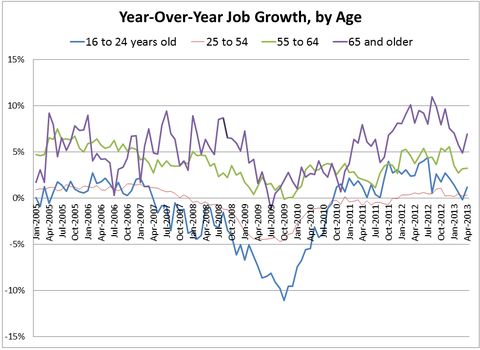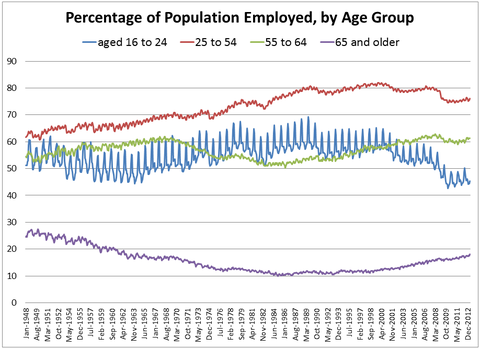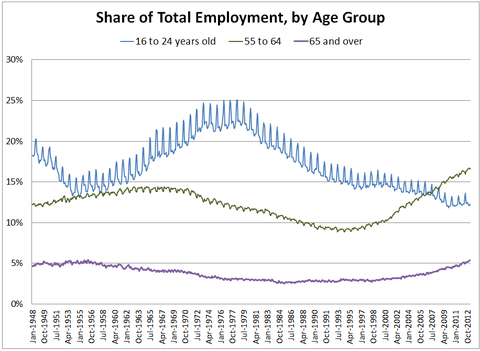The Great Recession has been a disaster for the employment prospects of the young. Almost one in four teenagers looking for a job still can’t find one.
Americans 16 to 24 years old suffered the sharpest drop in employment between 2008 and 2010, and jobs for young workers have barely ticked up since then.
 Source: Bureau of Labor Statistics, via Haver Analytics
Source: Bureau of Labor Statistics, via Haver Analytics
Today, only 45 percent of young Americans in that age group have a job, almost 6 percentage points less than when the recession started in December 2007.
 Source: Bureau of Labor Statistics, via Haver Analytics
Source: Bureau of Labor Statistics, via Haver Analytics
The story is quite different at the other end of the life cycle. Eighteen percent of Americans of retirement age hold a job, some 2 percentage points more than when the recession started. The employment rate of these elderly workers is at its highest since May 1965 — before the enactment of Medicare. They are filling the largest share of jobs since 1956.
 Source: Bureau of Labor Statistics, via Haver Analytics
Source: Bureau of Labor Statistics, via Haver Analytics
So what’s going on? Older Americans may have a more pressing need for a job. The homes of many are probably still underwater. Though the stock market has recovered the ground lost during the downturn, interest rates remain near all-time lows — crimping the elderly’s income from savings.
And we should expect the employment rate of the elderly to continue rising. The structure of Social Security benefits is one of the most important determinants of employment among the elderly. And Social Security is getting stingier over time.
The age of full retirement rose by two months for many workers entering retirement at the beginning of the recession. It has remained constant since then, but is expected to start rising again for workers born in 1955 and after, who will reach full retirement age in a few years.
Over the long term, this might be a good thing for the economy, raising the nation’s sustainable growth rate — the growth manageable without inflation — above the 2.25 percent forecast by the Congressional Budget Office. But in the next few years, young workers would probably prefer older workers to retire.
Article source: http://economix.blogs.nytimes.com/2013/05/03/the-old-vs-the-young/?partner=rss&emc=rss
Speak Your Mind
You must be logged in to post a comment.